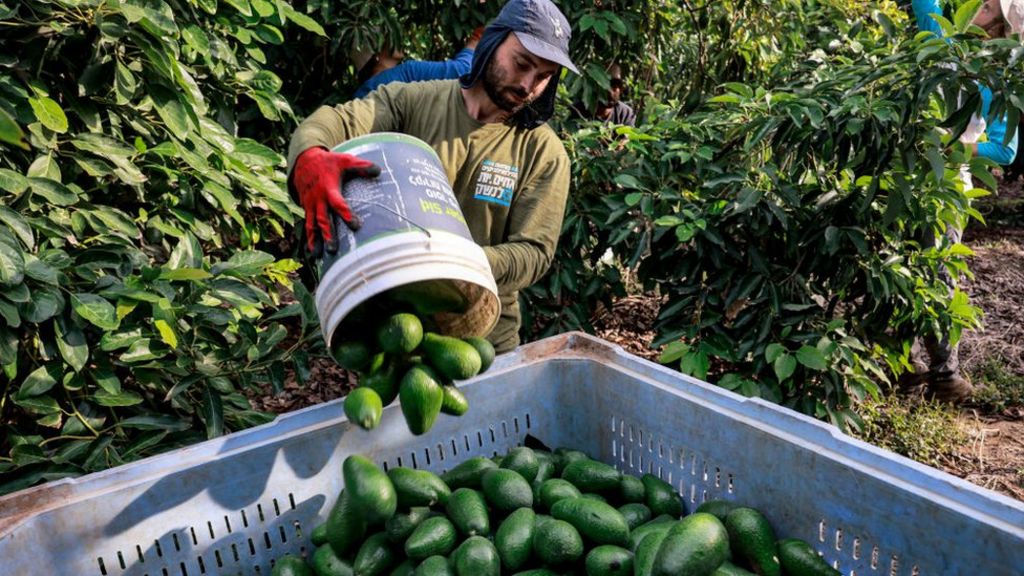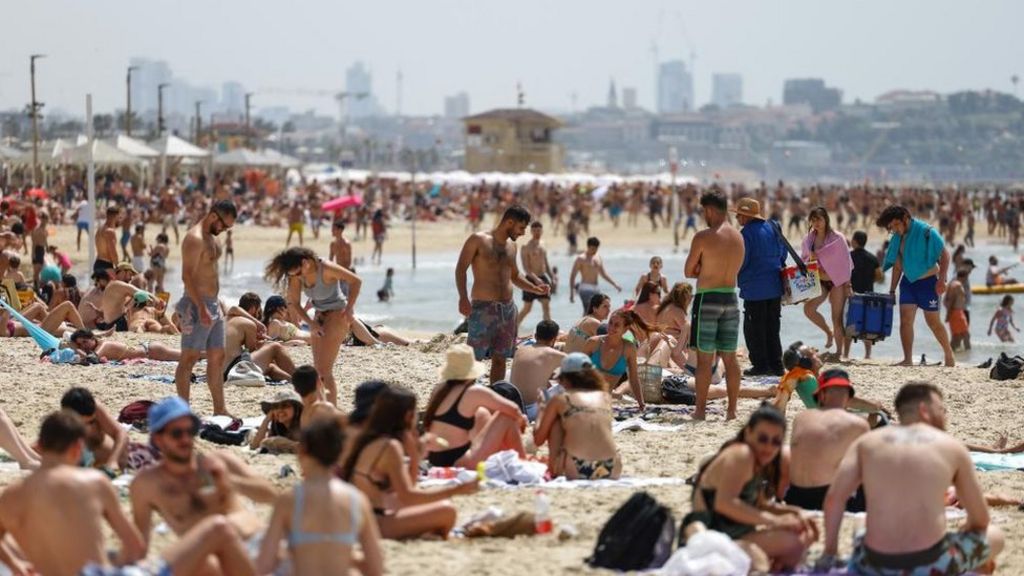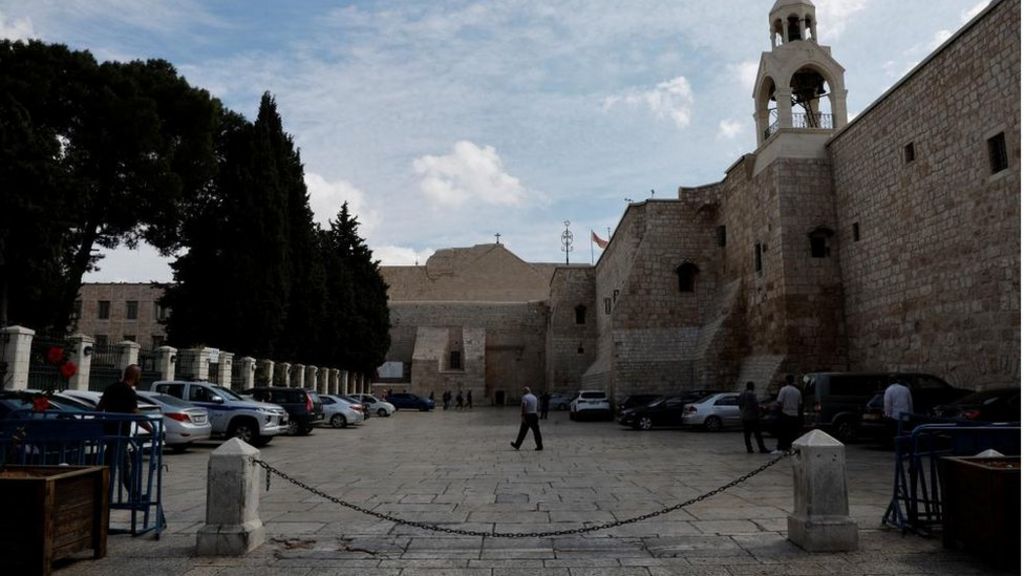Economy
'By definition a temporary shock:' Canadian economy likely set for sharp rebound, despite current panic – National Post
OTTAWA — The Canadian economy could be headed for a sharp rebound by the end of the year or even earlier, economists say, despite a recent crash in stock markets that have generated apocalyptic fears around the globe.
The rapid spread of COVID-19 triggered a catastrophic selloff in recent weeks that has, by some measures, cut even deeper than the 2008 financial crisis, including the worst oil price shock seen in decades.
Economists say it is highly uncertain when markets might return to normal. But due to the fast-paced nature of pandemics, an eventual containment would spur a hasty recovery as consumer spending lurches upward and businesses fill the gaps in their supply chains.
“The virus itself, and how it’s evolving, is almost by definition a temporary shock that’s going to be reversed,” said Jean-François Perrault, chief economist at Scotiabank.
The comeback could begin as early as this summer, depending on whether governments can effectively contain the outbreak, economists say, while cautioning that a timeframe is especially hard to predict given the limited understanding of COVID-19.
Such a rebound would ease the significant political pressure now facing Prime Minister Justin Trudeau, who is being called upon to act fast as virus worries become elevated. The Liberal government has for years aggressively sought to take credit for any positive economic indicators in Canada, and the recent downturn has severely restricted one of its key talking points as it prepares to table its 2020 budget.
Fiscal measures expected to be announced soon by Finance Minister Bill Morneau will also help lift the economy out of a potential short-term recession, economists say. Morneau has already announced $10-billion in credit to small businesses to make up for lost cash flows. A surprise interest rate cut by the Bank of Canada on Friday, down to 0.75 per cent, will also fuel plenty of low-cost debt spending that will quickly spread through the economy.
“Once we go back to normal, all that stimulus is going to lead to some pretty strong growth,” Perrault said.
Still, economists caution Canada is likely headed for deep recession in the near term. And a failure to quickly contain the virus could add to the current turmoil, making it increasingly difficult for the global economy to limp back to health.
The Canadian economy is widely expected to grow at an average rate between 1.6 per cent and 1.8 per cent over the next five years. In the second quarter, by comparison, Bank of Montreal analysts see that number falling to a staggering negative six per cent. By the third quarter, they forecast that number to climb back to 4.5 per cent growth, or a roughly ten per cent swing.
“We could see some pretty extreme economic numbers in the coming months,” said Doug Porter, chief economist at BMO.
Porter said market fears are entirely justified, given the sheer precipitousness of the recent market crash. But like others, he sees recent market panic subsiding within a relatively short period.
“It’s almost like we’ve taken the 2008 situation and accelerated it to within a one-month timeframe,” he said.
“But I do think there is some tendency, when there are so many waves of tough headlines in such a short period, to lose sight of what’s just over top of the hill.”
All that stimulus is going to lead to some pretty strong growth
Brian DePratto, director of economics at Toronto Dominion Bank, estimates that total fiscal spending measures by the federal government could be around one per cent of GDP, or roughly $24 billion. Such spending is likely to offer a significant bridge for small companies and taxpayers as they wait for the spread of the virus to slow.
“You’ve got a whole lot of juice waiting to bring things back up to speed,” DePratto said.
However, that sharp return is not likely to be extended to the oil patch, where recoveries tend to take much longer to materialize. Canadian oil producers have been navigating low oil prices since 2014, which have been exacerbated by a lack of new pipeline capacity that has pummelled prices for Canadian crude.
“What we’ve learned in the past is the lingering impact on the Canadian oil sector, and investment there, could be quite long lived,” he said. “We were not even really recovered from the last shock at the point where this one came.”
New spending measures would add significant new sums to the federal deficit, which was already expected to come in at $26.6 billion this year, higher than an earlier estimate of $19.8 billion. But economists say Ottawa’s net debt as a percentage of GDP, currently around 30 per cent, remains among the lowest in developed countries, and at low interest rates is of minimal risk to federal coffers.
Economy
'We need a miracle' – Israeli and Palestinian economies battered by war – BBC.com


More than six months into the devastating Gaza war, its impact on the Israeli and Palestinian economies has been huge.
Nearly all economic activity in Gaza has been wiped out and the World Bank says the war has also hit Palestinian businesses in the occupied West Bank hard.
As Israelis mark the Jewish festival of Passover, the much-vaunted “start-up nation” is also trying to remain an attractive proposition for investors.
The cobbled streets of Jerusalem’s Old City are eerily quiet. There are none of the long queues to visit the holy sites – at least those that remain open.
Just after Easter and Ramadan and right in the middle of Passover, all four quarters of the Old City should be teeming with visitors.
Just 68,000 tourists arrived in Israel in February, according to the country’s Central Bureau of Statistics. That’s down massively from 319,100 visitors in the same month last year.
While it may be surprising that any visitors pass through Jerusalem at a time of such tension, many of those who do are religious pilgrims from across the globe who will have paid for their journeys well in advance.
Zak’s Jerusalem Gifts was one of only a handful of stores on Christian Quarter Street in the Old City, which is situated in occupied East Jerusalem, to have bothered opening up on the day I passed by.
“We’re only really doing online sales,” says Zak, whose business specialises in antiques and biblical coins.
“There are no actual people. The last week, after the Iran-Israel escalation, business dropped down again. So we are just hoping that after the holidays some big major miracle will happen.”
It’s not just in Jerusalem’s Old City that they need a miracle.
Some 250km (150 miles) further north, on Israel’s volatile border with Lebanon, almost daily exchanges of fire with Hezbollah since the war in Gaza began have forced the Israeli army to close much of the area and 80,000 residents have been evacuated further south. A similar number of Lebanese have been forced to leave their homes on the other side of the border.
Agriculture in this part of Israel is another economic sector that has been hit hard.
Ofer “Poshko” Moskovitz isn’t really permitted to enter his avocado orchard in the kibbutz of Misgav Am because of its proximity to the border. But he occasionally ventures in anyway, walking wistfully among the trees, to gaze at all of his “money falling on the ground”.
“I must go to pick in the orchard because it’s very important for the next season,” Poshko says. “If I don’t pick this fruit, the next season will be a very poor one.”
He says he is losing a lot of money because he can’t pick the avocados – around 2m shekels ($530,000; £430,000) this season, he says.


Although they provide a living for thousands of people, agriculture and tourism account for relatively small parts of both the Israeli or Palestinian economies.
So what does the wider picture show?
Last week ratings agency S&P Global cut Israel’s long-term ratings (to A-plus from AA-minus) reflecting a loss of market confidence after increased tensions between Israel and Iran and concerns the war in Gaza could spread across the wider Middle East.
That loss of confidence was also reflected in falling Israeli GDP – the total value of goods and services produced in the economy – which decreased by 5.7% in the last quarter of 2023. Many Israelis though say the country’s renowned high-tech and start-up sector is proving to be more “war-proof” than expected.
The coastal city of Tel Aviv is only 54km from Jerusalem. More pertinently, perhaps, it’s less than 70km from Gaza.
At times, you’d be forgiven for forgetting – however momentarily – that Israel is embroiled in its longest war since independence in 1948.


Families make the most of the early summer sun to play in the surf, couples eat lunch in the many open-air beach restaurants and young people strum away on guitars on the green spaces between the coastal road and the Mediterranean.
The backdrop is a city that is economically active and physically growing fast.
“They joke that Israel’s national bird should be the crane – the mechanical kind!” says Jon Medved, founder and CEO of the online global venture investment platform Our Crowd.
An engaging character with an overwhelmingly upbeat view of his world, Medved tells me that, “in the first quarter of this year, almost $2bn was invested in Israeli start-ups… We’re having one of the best years we’ve ever had. People who are engaged with Israel are not disengaging.”
Medved insists that, despite everything, Israel is still the “start-up nation” and a good option for would-be investors.
“There are 400 multinational corporations that have operations here. Not a single multinational, has closed its operation in Israel since the war.”
To an extent, Elise Brezis agrees with Mr Medved’s assessment.
The economics professor at Bar-Ilan University near Tel Aviv acknowledges that despite the last quarter’s GDP figures, Israel’s economy remains “remarkably resilient”.
“When it comes to tourism, yes, we have a reduction in exports. But we had also reduction in imports,” says Brezis. “So in fact, the balance of payments is still okay. That’s what is so problematic is that from the data, you don’t really feel that there is such a terrible situation in Israel.”
But Prof Brezis detects a wider malaise in Israeli society that isn’t reflected in economic data.
“Israel’s economy might be robust, but Israeli society is not robust right now. It’s like looking at a person and saying, ‘Wow, his salary is high,’ […] but in fact he’s depressed. And he’s thinking, ‘What will I do with my life?’ – That’s exactly Israel today.”
If the outlook in Israel is mixed, then across the separation barrier that divides Jerusalem and Bethlehem the view from the Palestinian side is overwhelmingly bleak.


Tourism is especially important to the economies of towns like Bethlehem in the occupied West Bank.
While some people are still heading to Jerusalem’s sites, in the place where Christians believe Jesus was born tourism “stopped immediately” after 7 October last year, says Dr Samir Hazboun, chairman of Bethlehem’s Chamber of Commerce and Industry.
That’s when Hamas attacked Israeli communities near Gaza, killing about 1,200 people, mainly civilians, taking about 250 hostages and sparking the current war.
There’s huge dependence and reliance on Israel’s economy here – but Israel virtually closed off the landlocked West Bank after 7 October and this has had a disastrous impact on the life and work of many Palestinians, Dr Hazboun says.
“The Bethlehem governorate right now is closed,” he says. “There are around 43 gates [in the Israeli security barrier] but only three are open. So with between 16,000 and 20,000 Palestinian workers from our area working in Israel, immediately, they lost their income.”
The chamber of commerce says that the revenues from local Palestinians working in Israel amounted to 22bn shekels ($5.8bn) annually.
“You can imagine the impact on the economy,” says Dr Hazboun, who is particularly concerned for the prospects for younger Palestinians the longer the war continues and more the Israeli and West Bank economies decouple.
“The younger generation now are jobless, they are not working. Many of them are talented people,” he laments.
“In June I’m expecting around 30,000 new graduates from the Palestinian universities. What they will do?
In Gaza itself the economy has been completely destroyed by six months of war. Israel’s relentless aerial bombardment and ground operations have killed 34,183 people, mostly women and children, according to the Hamas-run health ministry.
Unlike in some parts of Israel, where there is optimism around being able to ride out the storm and continue attracting investors, in the West Bank and Gaza there is little hope things will return to any kind of normal.
Economy
China Wants Everyone to Trade In Their Old Cars, Fridges to Help Save Its Economy
|
|


China’s world-beating electric vehicle industry, at the heart of growing trade tensions with the US and Europe, is set to receive a big boost from the government’s latest effort to accelerate growth.
That’s one takeaway from what Beijing has revealed about its plan for incentives that will encourage Chinese businesses and households to adopt cleaner technologies. It’s widely expected to be one of this year’s main stimulus programs, though question-marks remain — including how much the government will spend.





Economy
German Business Outlook Hits One-Year High as Economy Heals
|
|


German business sentiment improved to its highest level in a year — reinforcing recent signs that Europe’s largest economy is exiting two years of struggles.
An expectations gauge by the Ifo institute rose to 89.9. in April from a revised 87.7 the previous month. That exceeds the 88.9 median forecast in a Bloomberg survey. A measure of current conditions also advanced.
“Sentiment has improved at companies in Germany,” Ifo President Clemens Fuest said. “Companies were more satisfied with their current business. Their expectations also brightened. The economy is stabilizing, especially thanks to service providers.”
A stronger global economy and the prospect of looser monetary policy in the euro zone are helping drag Germany out of the malaise that set in following Russia’s attack on Ukraine. European Central Bank President Christine Lagarde said last week that the country may have “turned the corner,” while Chancellor Olaf Scholz has also expressed optimism, citing record employment and retreating inflation.
There’s been a particular shift in the data in recent weeks, with the Bundesbank now estimating that output rose in the first quarter, having only a month ago foreseen a contraction that would have ushered in a first recession since the pandemic.
Even so, the start of the year “didn’t go great,” according to Fuest.
“What we’re seeing at the moment confirms the forecasts, which are saying that growth will be weak in Germany, but at least it won’t be negative,” he told Bloomberg Television. “So this is the stabilization we expected. It’s not a complete recovery. But at least it’s a start.”
Monthly purchasing managers’ surveys for April brought more cheer this week as Germany returned to expansion for the first time since June 2023. Weak spots remain, however — notably in industry, which is still mired in a slump that’s being offset by a surge in services activity.
“We see an improving worldwide economy,” Fuest said. “But this doesn’t seem to reach German manufacturing, which is puzzling in a way.”
Germany, which was the only Group of Seven economy to shrink last year and has been weighing on the wider region, helped private-sector output in the 20-nation euro area strengthen this month, S&P Global said.
–With assistance from Joel Rinneby, Kristian Siedenburg and Francine Lacqua.
(Updates with more comments from Fuest starting in sixth paragraph.)





-



 Health24 hours ago
Health24 hours agoRemnants of bird flu virus found in pasteurized milk, FDA says
-
News21 hours ago
Amid concerns over ‘collateral damage’ Trudeau, Freeland defend capital gains tax change
-
Art18 hours ago
The unmissable events taking place during London’s Digital Art Week
-



 Politics22 hours ago
Politics22 hours agoHow Michael Cohen and Trump went from friends to foes
-
Science23 hours ago
NASA hears from Voyager 1, the most distant spacecraft from Earth, after months of quiet
-



 Real eState23 hours ago
Real eState23 hours agoBlending Function and Style: The Best Garage Door Designs for Contemporary Homes
-
Media24 hours ago
Vaughn Palmer: B.C. premier gives social media giants another chance
-
News22 hours ago
U.K. tabloids abuzz with Canadian’s ‘Loch Ness monster’ photo






